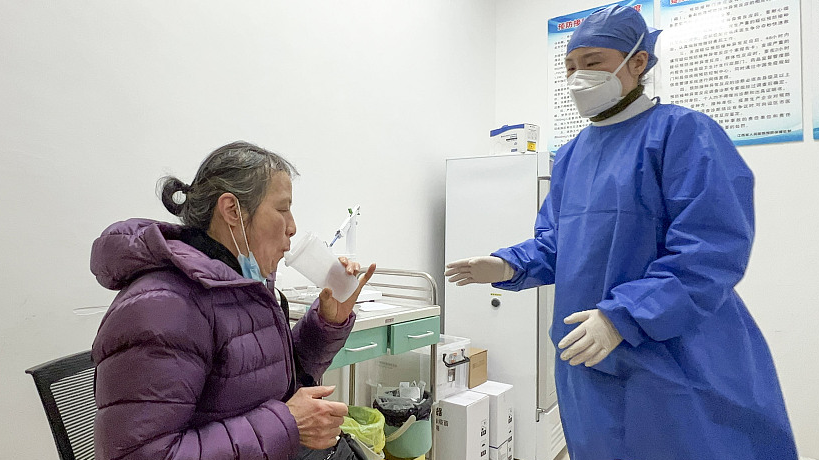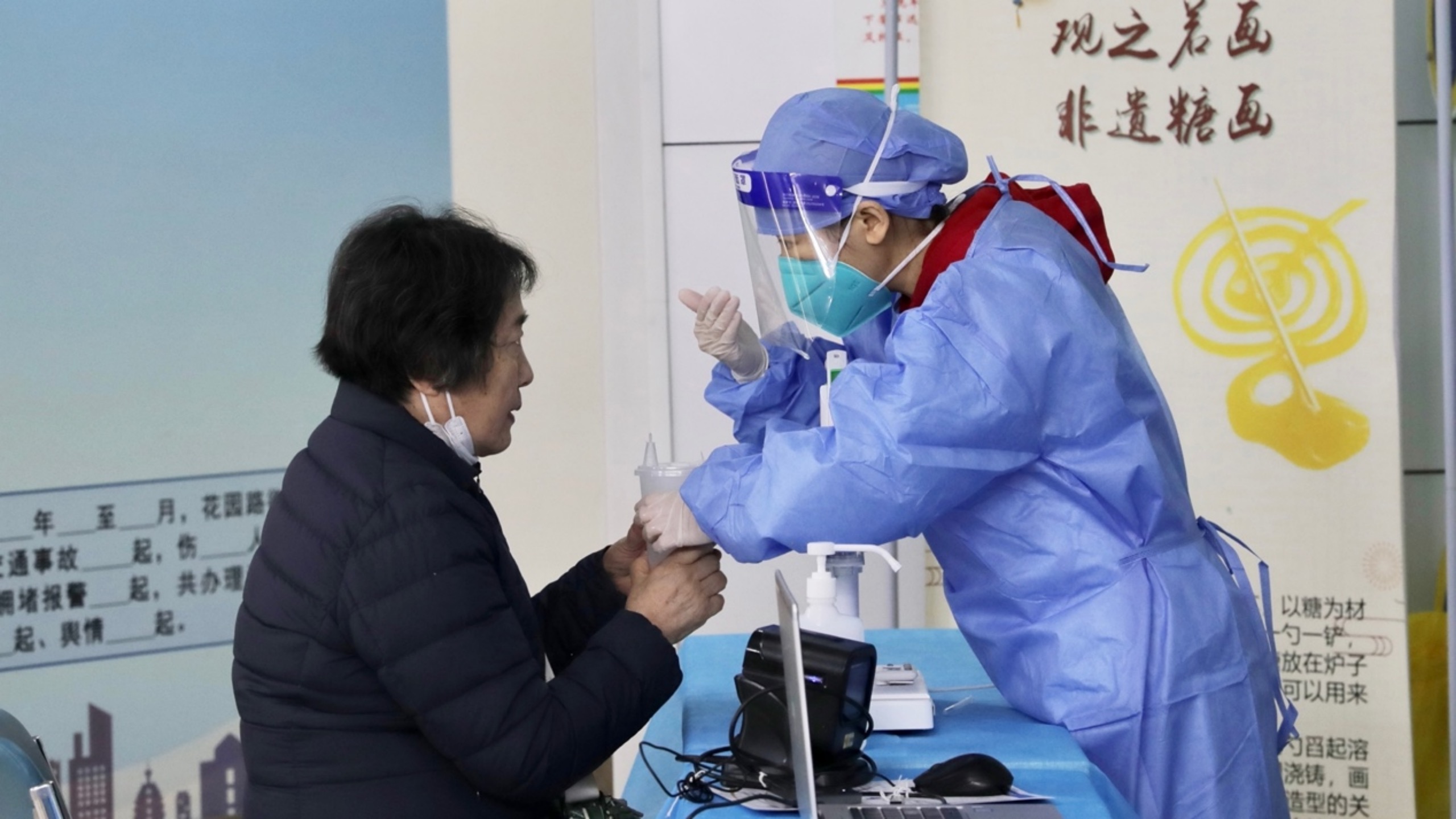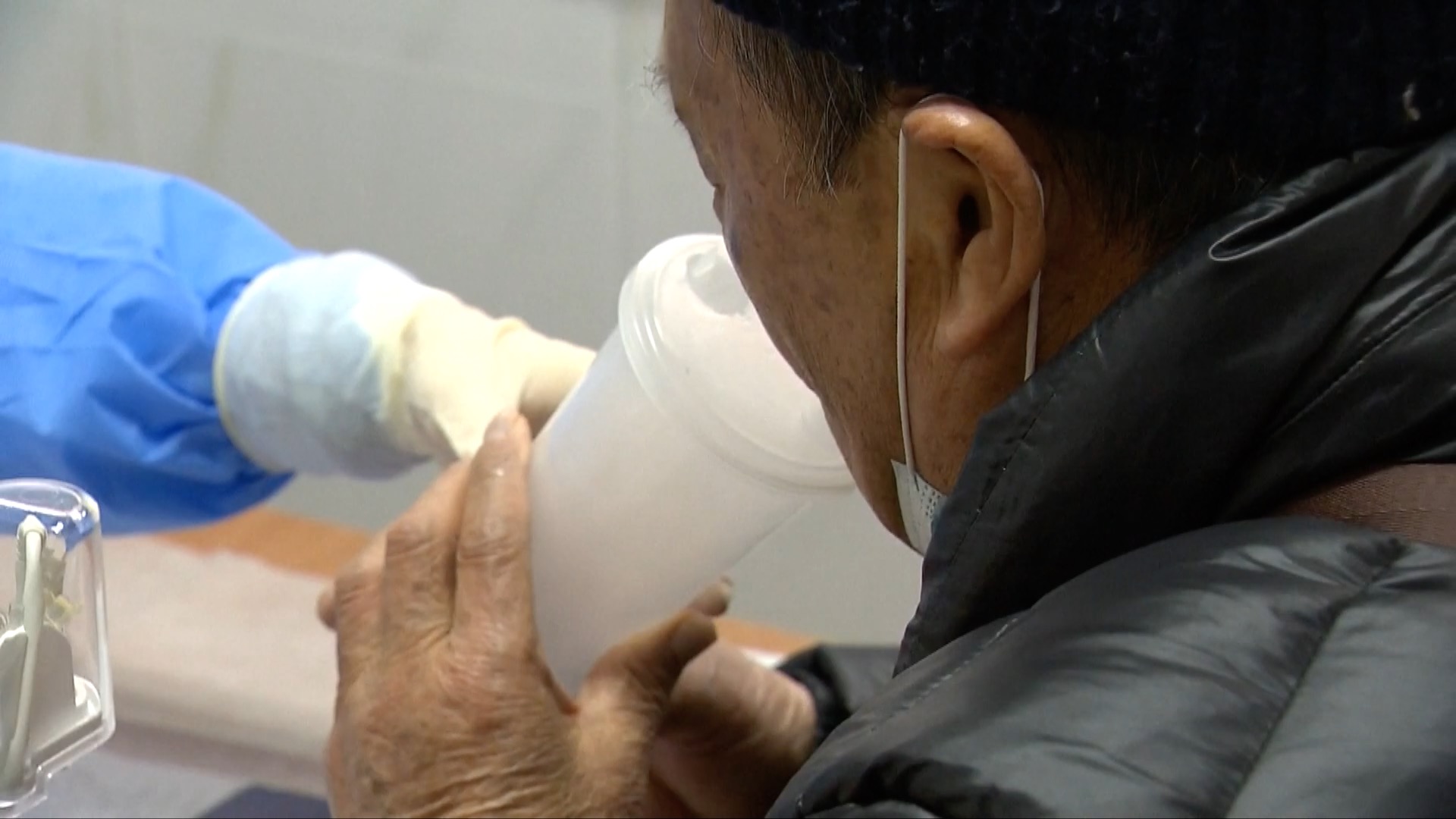
A senior uses an inhalable COVID-19 booster at a local hospital in Nanchang City, south China's Jiangxi Province, December 7, 2022. /CFP
A senior uses an inhalable COVID-19 booster at a local hospital in Nanchang City, south China's Jiangxi Province, December 7, 2022. /CFP
China is rolling out inhalable COVID-19 boosters, giving people a needle-free option to fend off the virus, with many appointments booked by the elderly.
Seniors in cities including Beijing and Shanghai are getting familiar with the coffee-cup-shaped COVID-19 vaccine devices.
Inhale, hold for five seconds, then breathe normally. That's it. Within seconds, the inhaled aerosolized COVID-19 vaccine reaches the upper respiratory tract and lungs, where immunity is triggered.
02:35

Yan Changrong, a local senior, experienced the process at Huayuanlu Community Health Service Center in Beijing.
"When the weather is cold, it is difficult for us old people to take off our clothes," Yan said. "[The inhaler] saves a lot of trouble and doesn't hurt as much as an injection. It even tastes a little sweet."
Experts say inhaled vaccines trigger immunity at our body's first line of defense, the mucous membranes, in addition to humoral and cellular immunity that traditional injectable vaccines trigger.
"It's normal to have a dry mouth after inhaling the vaccine. Drinking water will relieve it," said Zhou Xin, head of the Preventive Health Section at the center.
00:42

Inhalable COVID-19 vaccines have been made available for Shanghai residents in East China since late October and are gaining popularity as a booster dose, especially among the elderly.
With over a month of preparation, more vaccination service centers in Shanghai have begun to provide the needle-free vaccine for residents.
China is now accelerating the vaccination rate of people aged 80 and above, continuing to push for the inoculation of those aged between 60 and 79.
According to the Joint Prevention and Control Mechanism of the State Council, over 90 percent of people aged 60 and above have received one dose in China. But it also noted that more work is still needed.